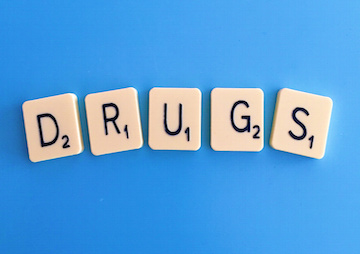Exec for Maker of $150,000 Cancer Drug Tells Investors Its Pricing Is ‘Very Responsible’
In a recent earnings call, a top official at pharmaceutical giant Johnson & Johnson dismissed questions about drug price reform and described the company as “responsible” in its pricing. Jonathan Rolande / CC BY 2.0
Jonathan Rolande / CC BY 2.0
In an earnings call with media and investors in October, a top official at pharmaceutical giant Johnson & Johnson dismissed questions about drug price reform and described the company as “responsible” in its pricing, reports Zaid Jilani at The Intercept.
Asked during the telephone call’s question-and-answer session whether the company would pledge, as many firms did in the 1990s, not to raise drug prices beyond the cost of inflation, Chief Financial Officer Dominic Caruso responded, “Despite significant media attention on drug pricing, there really isn’t a consensus on policy solutions that would lower prices without negatively lowering innovation.”
After that bit of newspeak, Caruso told the questioner that the “real answer to this dilemma is to monitor and provide outcome-based metrics and not simply focus only on price.”
Finally, in response to a question about the industry voluntarily restraining the prices of its drugs, Caruso said that the company should focus instead on justifying its current prices. “I think, we’re very responsible in our drug pricing. And we tend to support the price of our drugs with strong economic data,” he said. “So rather than pledge to a particular number I think it’s important that we continue to develop robust data that provides a solid foundation for the value that our products provide the health care system.”
Listen to Caruso’s full remarks:
Jilani adds:
“Johnson and Johnson’s justification for their prescription drug prices are outrageous,” Vijay Das, a health care advocate at Public Citizen, told The Intercept in response to [Caruso’s] comments to investors. Sick patients and taxpayers are held hostage in order for the drug maker to extract extreme profits.”
Das pointed to investor documents Johnson & Johnson uploaded that show the company spent 12.6 percent of its total sales in research and development, compared to 26.6 percent it spent on selling, marketing, and administrative expenses. This means the company was spending twice as much on marketing and sales as on actually developing the drugs. […]
Another drug it produces, Olysio, is used to treat Hepatitis C. This drug retails at around $22,000 on the low end for around a month’s supply (see daily dosing here). Altogether, that equals $264,000 for an annual supply.
“Hepatitis C treatment costs are forcing state governments to consider rationing care for their Medicaid and prison rolls,” said Das. “Instead of simply charging less, this industry is outdoing itself every year; extracting huge profits at the expense of our poor and sick.”
— Posted by Alexander Reed Kelly.
Your support matters…Independent journalism is under threat and overshadowed by heavily funded mainstream media.
You can help level the playing field. Become a member.
Your tax-deductible contribution keeps us digging beneath the headlines to give you thought-provoking, investigative reporting and analysis that unearths what's really happening- without compromise.
Give today to support our courageous, independent journalists.








You need to be a supporter to comment.
There are currently no responses to this article.
Be the first to respond.